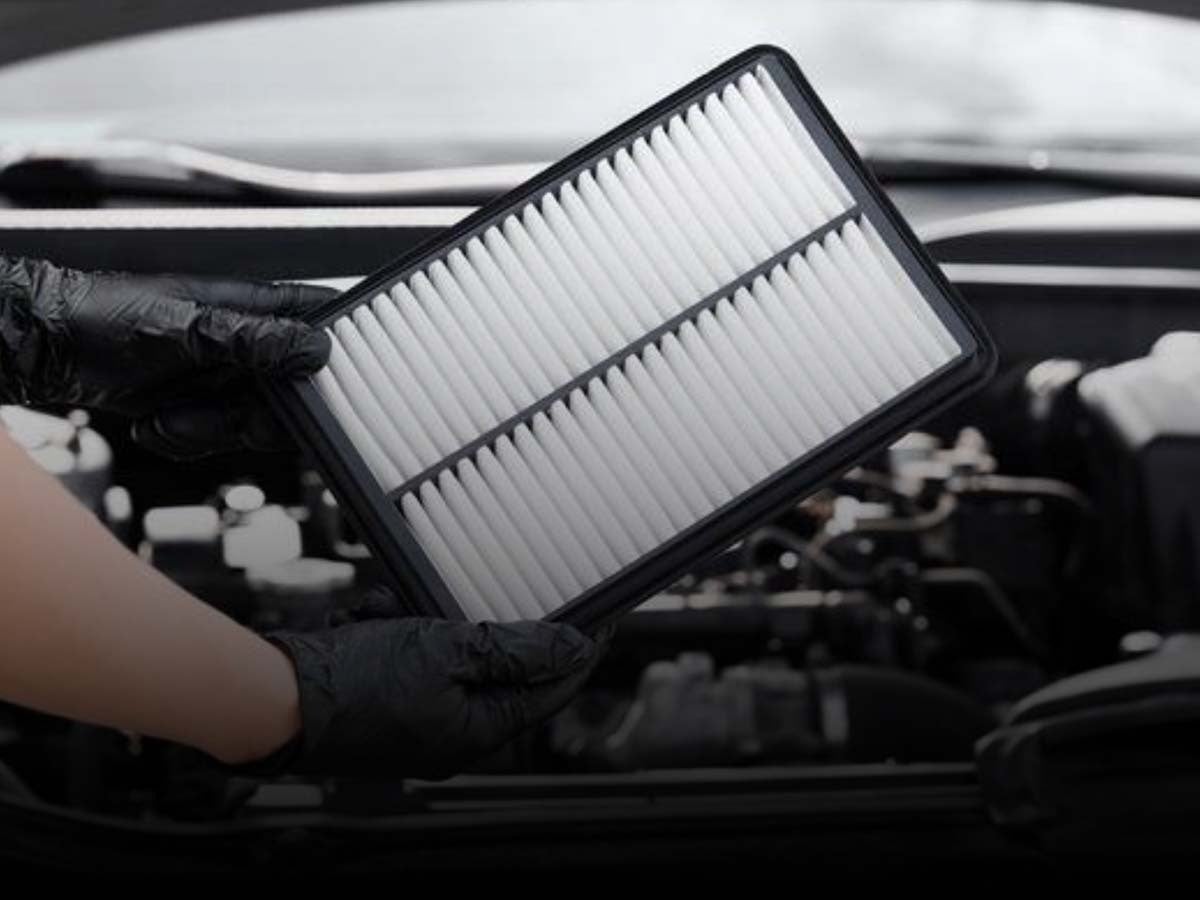

How to Choose the Right Air Filter for Your Car
- 1Efficient air filtration keeps your engine clean and running smoothly
- 2Different filter materials affect airflow, performance, and maintenance
- 3Choose a filter based on your driving needs and environmental conditions
A car’s engine has multiple components that work in tandem to generate power. One of these many essential components is the air filter. Air filters ensure that the air that goes into your car’s engine remains clean and uncontaminated. If dust enters the combustion chamber, it can cause scratches to the cylinder walls, which can eventually lead to loss of compression, and ultimately catastrophic damage to the engine.
Air is a crucial element in the functioning of the engine, as the oxygen present is air required for combustion within the cylinders. Air is sucked in through the air filter, passes through the intake, mixed with fuel, and finally sent into the combustion chamber via the injectors, where the power stroke occurs in the form of a controlled explosion.
Function of Air Filters in Cars

The combustion chamber within the engine is a tightly constructed metal contraption, which comprises many components. It is essential for the combustion chamber to be free of any contaminants, such as dust, dirt, or any other particles, as these can cause scratches to the cylinder walls, which can cause the engine to lose its power and efficiency. There are a couple of filters to ensure the insides of the engine remain clean, such as fuel filter, oil filter, and the air filter.
The air filter is installed at the start of the intake system. Air is drawn through the air filter, clearing out any contaminants, before it reaches the engine. Air filters come in various shapes and sizes, and some are designed for various purposes.
Different Types of Air Filters
Air filters are not one-size-fits-all. They come in a range of shapes, sizes, and materials depending on the vehicle’s requirements. A small commuter car doesn’t demand the same kind of airflow as a performance-tuned sports car or a heavy-duty SUV, and that’s reflected in the construction of the filter itself. At a glance, all air filters may seem to serve the same function, but the material they’re made from and how they’re constructed can significantly influence performance, durability, and maintenance needs.
Paper Air Filters

The most commonly used material in factory-installed air filters is paper. These are not the kind of paper you’d find in your printer, of course, but specially treated cellulose material that’s been pleated to increase surface area. Paper filters are highly efficient at trapping fine dust particles, making them suitable for daily driving in normal urban or suburban conditions.
They are inexpensive to manufacture and easy to replace. However, their biggest drawback is that they are typically not reusable. Once clogged, a paper filter must be replaced to maintain airflow and engine efficiency. They also tend to restrict airflow more than some aftermarket alternatives, which can limit performance for those looking to extract every bit of power from their engines.
Cotton Gauze Air Filters

Moving one step up, we find cotton gauze filters, which are especially popular in the aftermarket segment. These filters usually consist of multiple layers of oiled cotton sandwiched between wire mesh. The oil plays a key role in capturing dirt particles while still allowing for better airflow compared to paper filters. This increased airflow often translates to marginal gains in horsepower and throttle response.
One of the key advantages of cotton filters is their reusability. Instead of replacing them frequently, they can be washed, re-oiled, and reused, making them a more eco-friendly and cost-effective option over the long term. However, this benefit comes with the added responsibility of proper maintenance. If not cleaned and oiled correctly, their effectiveness can be compromised, potentially allowing contaminants into the engine.
Foam Air Filters

Foam air filters, though less common in modern passenger cars, still find their place in off-road and performance applications. Made from polyurethane foam, these filters are often used where dust levels are extremely high, such as in rallying or dirt biking. Foam filters are excellent at capturing large amounts of debris without compromising airflow. They can be cleaned and reused several times, and their thick, open-cell structure helps trap even the finest particles when treated with oil.
However, foam filters can degrade over time, especially if exposed to harsh chemicals during cleaning, and their filtration performance may not be as high as that of a well-maintained cotton filter in more controlled environments.
Synthetic Air Filters

Then there are synthetic air filters, a relatively newer entry into the market. These filters use man-made fibers arranged in a fine mesh pattern to capture contaminants. Unlike cotton or foam, synthetic filters usually do not require oiling, which simplifies maintenance.
Synthetic air filters offer good filtration performance, often matching or even surpassing paper filters, while also providing better airflow. The main appeal of synthetic filters lies in their low maintenance requirements and long service life, making them ideal for drivers who want improved performance without the hassle of frequent cleaning or replacements.
Choosing the Right Air Filter for Your Car
Choosing the right air filter depends largely on your driving conditions and expectations. For daily commuting and occasional long drives, a standard paper filter might be sufficient. But for those seeking better throttle response, improved efficiency, or who drive in dust-heavy environments, an upgrade to a reusable cotton, foam, or synthetic filter could be well worth the investment. Each material has its strengths and trade-offs, and understanding these can help you make a more informed decision when it comes time to replace or upgrade your car’s air filter.
Frequently Asked Questions
Expand all




























